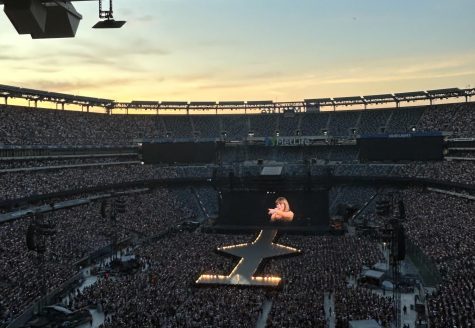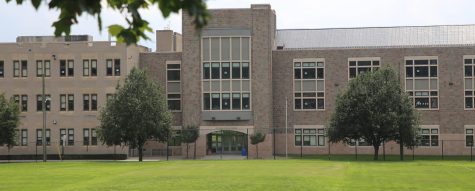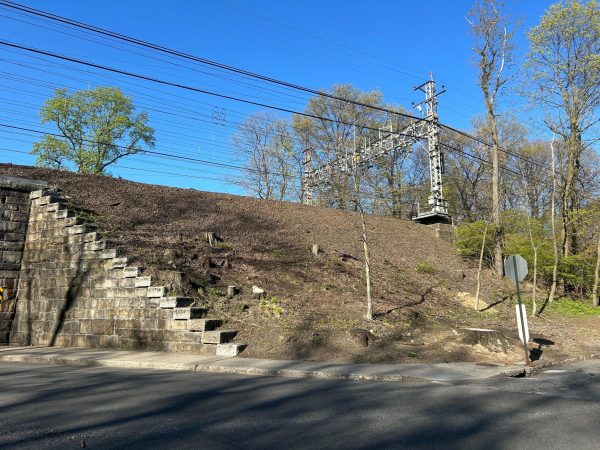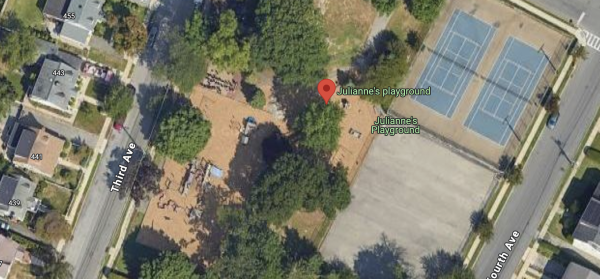A call for climate revolution in Pelham
Can you imagine leaving your job one day a week every week, indefinitely, without the support of your family, colleagues, or representatives to demand immediate, complete restructuring of society? Can you imagine doing that at fifteen?
Greta Thunberg of Stockholm began striking school in the fall of 2018, sitting on the steps of the Swedish parliament each day and demanding that the government reduce carbon emissions in accordance with the Paris Agreement. At first shunned by her parents, peers, and politicians, Greta eventually mobilized school and university strikes around the globe. By December, over 20,000 students had participated in strikes in 270 cities.
 Greta credits the students of Parkland organizing the national school walkouts and March for Our Lives, which took place around the U.S. and beyond last winter, as her inspiration for a school strike for climate.
Greta credits the students of Parkland organizing the national school walkouts and March for Our Lives, which took place around the U.S. and beyond last winter, as her inspiration for a school strike for climate.
Now I am not encouraging barren halls of PMHS as students bang on the doors of the Daronco Townhouse calling for a climate revolution. But watching tens of thousands of teenagers around the world rally and protest every week chanting in dozens of languages against all varieties of government covered by all types of media has made me realize that the climate revolution is already here.
At a glance, Pelham is a relatively environmentally progressive town. Under the stewardship of a concerned Board of Education, Village Sustainability Advisory Board, EcoPel, and Pelham Eliminates Plastics, our schools and streets are packed with assorted recycling bins, businesses throughout town are challenged for the presence of single-use plastics, multiple solar campaigns have been launched, and the frequency of recycling pick up has been doubled. However, we are miles from the sustainable future that a generation of climate activists has envisioned.
Many may contest that Pelham is a small town of approximately 2.2 square miles and 12,659 people (according to the 2017 census), and our carbon footprint is irrelevant compared to the glittering metropolis half an hour south.
Except that New York City just agreed to divest $5 billion from fossil fuels and sue major oil companies like ExxonMobil, BP, and Shell.
But what’s the point of taking radical climate action in our home and villages? I want Pelham to be a leader in environmental action in Westchester, New York, and beyond. With sweeping international goals established by the Paris Agreement and aspirations for a national sustainable future proposed by the Green New Deal, awareness of climate solutions and their necessity is spreading on a large scale, but next to nothing is being accomplished. And if citizens of all political affiliations have learned anything from two years under the Trump administration, it is that all politics starts from the roots of local politics.
In other words, we will continue to fail to address climate change until the twelve-year mark noted by the Intergovernmental Panel on Climate Change (IPCC) when all mitigation efforts to prevent global temperature rise become futile, unless we act now. Quickly, efficiently, and, most importantly, locally.
So what can Pelham do as a town community to break the climate silence and take action? For a start, a letter receiving 70 signatures from town citizens proposed by EcoPel was presented to the Board of Education this past September urging that the new building for Hutchinson Elementary School aim to be net-zero emissions, moving towards a zero-waste future. The BOE has settled for a Leadership in Energy and Environmental Design (LEED) Silver benchmark certification as a goal, balancing a desire for “environmentally-friendly” school infrastructure which would allocate the district’s assets to be a “benefit to the students and community.”
However, if we are to prioritize and maximize sustainability and benefit students and community in the long term, we must strive for a Gold certification despite the increased cost of construction, creating a truly structurally green building and an educational precedent for environmental learning which will permeate throughout the town from the students up for years to come.
Human-caused climate change is a fact accepted by over 60% of American citizens, yet under 5% regularly discuss it. It’s understandable that the threat of human extinction isn’t ideal dinner table banter, but a large part of the fear that proliferates this silence is founded on a falsehood – the belief that we do not have the solutions. In Greta’s words, “The climate crisis has already been solved. All we have to do is wake up and change.”
In that vein, I believe Pelham citizens should actively work with the village and town governments to push for a mandate of clean energy. Infrastructure such as solar panels, double paned windows, low energy lights, and revised heating systems should become the norm, implemented into the development on Sparks Avenue, the new Hutchinson Elementary building, the renovations to the middle and high school, and as many individual homes as possible. Simple, small solutions like these will save energy, protect against rising prices of non-renewables and integrate environmental consciousness into Pelham’s culture where it can’t be ignored.
Other policies that could be enacted in Pelham include the regulation of transportation, extending limitations on idling and subsidized parking, adding car-free zones and bike paths. Furthermore, regardless of progress thus far, our systems of waste must be constantly improved, adding a regularly used system of community composting and more textile recycling sites.
Sustainability should be woven into the curriculum throughout the school district through education programs studying climate change, justice, and solutions on every scale. I’ve often heard peers of mine call for the return of the Home Economics course in the high school; perhaps this is the opportunity, adding an addendum of Sustainable Home Economics. The idea of cultivating simple acts against wastefulness and environmental degradation should be introduced to students as comprehensively as possible at all ages.
Pelham is a bustling town with many focuses of government and public engagement in different areas. Perhaps composting or low energy lights don’t seem like priorities next to issues of traffic or overcrowding. However, incremental change and rapid change are not mutually exclusive by any means, and if Pelham wants to join thousands of environmentally progressive cities and voices in instating effective climate action, we must integrate sustainability and divestment into our culture and community and the very identity of Pelham. Not to mention that the results of climate change – perhaps most familiar to Pelhamites as Hurricane Sandy sweltering summer heat – only exacerbate issues of gentrification and inequality in communities.
And for a climate which impacts every facet of human life, we must undermine the stigma around sustainability and environmental politics to develop a collective effort. You don’t need to be political to save the planet.
Greta Thunberg spoke at the UN Climate Change Conference COP24 in Poland in December and at Davos in January, calling out world political and economic leaders for basing their financial success on the exploitation of future human suffering. She has received international media coverage for months, she has become a household name in Sweden, and climate change is now a topic of daily discussion across Europe. Greta proved just how easy it is to change the world. Changing Pelham shouldn’t be too much more difficult.
Violet Massie-Vereker is a senior at Pelham Memorial High School. Her experience in journalism includes writing for the News of Pelham for the past two...

















Aimee • Mar 1, 2019 at 9:04 am
Violet, what a well thought out piece. I too see the flat roof on the PMS / PMHS, or the new Hutchinson school plan and just see so much solar potential and wonder why in the world that is not our priority given where the world is going and that it helps control energy costs for our future. Another point that I want to make is that the Village and Town’s commitment to building and acting w greener practices should also inform the mindfulness w r t consumption on a personal level. Our choices matter. When I see fun events become a single-use-scenario like 100 day school celebrations, Novel Night or Pelham High Olympics and people order costumes and more “stuff” it seems wasteful to me. I know it is fun, but it can be done with thrift store finds and in other ways. Sharing stuff over fb is a great way to do this. Or improvise with paper on not the “perfect” one click away purchase. The popular Kon Mari ditching of stuff not in immediate use only exacerbates this trend IMO. I save a lot of “costumery” for events and my kids / I / friends can borrow from my “library of stuff” for events. I hosted NN this year and started to get click happy but then I realized the people in costume were my main decor items. I didn’t need a lot of other decor. Most times a REFUSAL to purchase is the best green defense act. I am sure I sound preachy but in buying favors for my daughter’s bday party, I chose a flower kit / seedling pot that wasn’t plastic and supplemented with candy my kids still had not consumed from Valentine’s day. We all have enough stuff already.
Laura Arm • Feb 28, 2019 at 5:24 pm
Congrats on a terrific article, Violet. You articulated the dire need for action on climate change. May I suggest that you include the conversion of gas-powered vehicles to all electrics or hybrids, with a commensurate tax break for all new cars. I believe it’s been reduced by the current administration. By the way, Israel is experimenting with vehicles powered by hydrogen cells – the only emission is water!
(Remember our hydrogen lab in seventh grade?). Alienating car drivers is not a good way to get them onboard, so best to find alternatives to fossil fuels rather than denying what many find essential to their lives and business. Just my opinion on this.